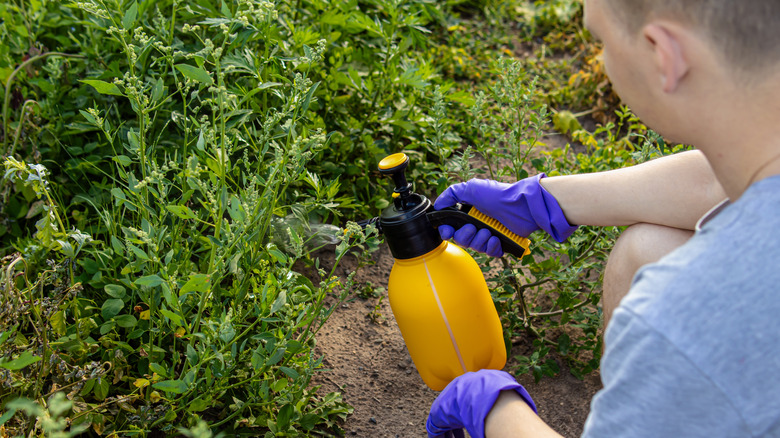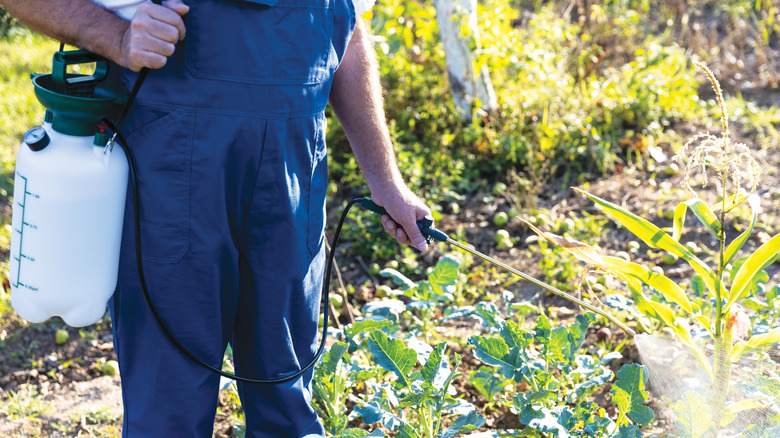How Overspraying Weeds Can Create A Bigger Problem In Your Yard
We all know the feeling of stepping out into the yard only to seed weeds taking over between your flowers, vegetables, or along a pathway. With a bottle of weed spray in hand, it's tempting to go in guns blazing, dousing every patch of weeds to wipe them out as quickly as possible. But there are some crucial weed-killer tips to know before you spray. While they can be effective, overdoing it can backfire. Overspraying doesn't just target the weeds; it risks affecting everything else in your yard, causing more damage than you might realize.
Weed sprays, especially those with potent herbicides, are designed to kill plants, but they're not always selective. When sprayed excessively, the chemicals can drift, seeping into the soil and spreading to nearby plants, harming or even killing them. This is especially risky in gardens with closely planted flowers, fruits, or vegetables, as overspray can weaken root systems or destroy sensitive plants.
Additionally, some weeds are more resilient to sprays, meaning that your intended targets may survive, but your flowers or veggies might not. Even small doses can cause yellowing, stunted growth, and other signs of stress on plants that weren't intended to be sprayed. If your garden is on a slope or experiences heavy rainfall, herbicides may also run off into surrounding areas, impacting nearby plants and contaminating water sources.
How to protect your garden while managing weeds
If you want to tackle weeds without risking the health of your garden, there are safer approaches to consider. Start by spraying only on calm, windless days to reduce the chance of drift affecting other plants. Additionally, try to spray close to the ground and use a targeted nozzle to aim directly at the weeds rather than casting a wider spray. Spot treatment (only spraying the weeds themselves) is far less risky than a blanket spray over a larger area.
You can also consider less harmful ways of killing weeds in your yard, like mulching around your plants. This method can suppress weeds without chemicals, protecting your desired plants while stifling weed growth. If spraying feels necessary, consider trying a vinegar-based weed killer or using natural herbicides, which may be less harsh on your surrounding plants. Hand-pulling weeds may be tedious but can sometimes be the safest and most effective method for preserving a garden's health.
So next time you notice those pesky weeds, resist the urge to overspray. A bit of care and precision can save your desired plants from unintended harm and help your yard remain lush, green, and beautiful. After all, a balanced garden requires more than just getting rid of weeds — it's about nurturing every plant so that they can grow together in harmony.

